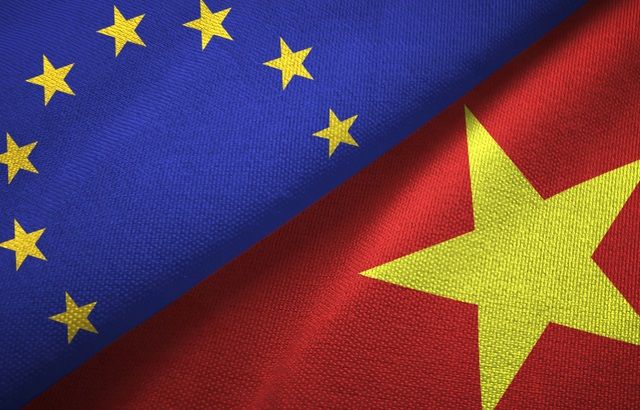Eurozone investor sentiment about the near-term prospects for European equities has been dampened by a succession of disappointing datasets.
Despite relatively strong GDP data, polls of business and consumer confidence show persistent concerns about the months ahead. The latest gloomy cloud moved in on Monday, when IHS Markit’s monthly manufacturing Purchasing Managers Index showed that the output from eurozone factories was shrinking more quickly than previously thought.
The report – which is highly anticipated by market economists – allocates a score of above, or below 50, based on data collected from 3,000 manufacturing firms in Germany, France, Italy, Spain, Netherlands, Austria, Ireland and Greece. A score above 50 illustrates growth in the sector, but a score below shows a contraction.
In July, the rating was 47.6, down from 47.8 in June and 47.7 in May. The score means that, on aggregate, eurozone manufacturers said their output has been contracting now for five months.
“Eurozone manufacturing remained stuck firmly in a steep downturn in June, continuing to contract at one of the steepest rates seen for over six years,” said Chris Williamson, chief business economist at IHS Markit.
“Deteriorating inflows of new work, meanwhile, meant manufacturers increasingly focused on keeping costs down, notably by cutting staff numbers and warehouse stocks.”
Brighter horizons
All is far from lost, however. Eurozone businesses were given a shot in the arm last week which could yet bolster their fortunes in the months ahead. At the end of June, the European Union announced two successive trade deals which may transform the fortunes of companies seeking to do business with South America and in East Asia.
On Friday (28 June) the European Union announced a deal with South American trade bloc Mercosur, concluding two decades of negotiations. Two days later, it signed another deal with Vietnam.
The EU hopes that the deal with the South American nations will radically increase access to Argentina, Brazil, Paraguay and Uruguay for manufacturers of industrial products and the automotive sector, which had previously faced tariffs of up to 35%.
The deal with Vietnam, meanwhile, will eradicate 99% of trade tariffs over a coming decade, it claims, although both deals still require approval by the European parliament.
News of these deals could be a much-needed boost for eurozone companies, according to some market experts, particularly the agreement with Mercosur, according to Matthew Holdgate, a portfolio manager at Nikko Asset Management.
“Although the deal has been a long-time in the making, we believe that completion of the deal is significant, not just for the political intent, but also for the potential long-term benefits for the parties involved,” he told Expert Investor.
“EU firms will benefit from an improved export environment for some of its key manufactured goods, including autos, with a growing South American consumer demand to tap into.”
Despite the potential benefits to businesses, others say that it is perhaps too early to second-guess how these deals will translate into returns from investor portfolios.
“The difficulty for markets is pricing this into individual company shares,” said Laith Khalaf, a senior analyst at Hargreaves Lansdown. “The benefits of a wide-ranging trade deal are naturally diffuse, and while the removal of tariffs presents an opportunity for certain sectors, companies still need to take advantage.”
Khalaf said that it will likely take time for European fund managers to digest the implications from the trade deals and integrate the repercussions into investor portfolios.
“I suspect most European fund managers won’t be making portfolio adjustments right away but will certainly considering the opportunities and threats arising from the trade deals and talking these through with company management teams to build a better picture of the implications for individual stocks.”
The bigger picture
The positive reverberations of these trade deals for eurozone businesses, will also be weighed against the wider macro-economic picture, however. Some say that the trade deals, in themselves, are likely to translate into a major positive for listed equities.
“The incremental opportunity is likely to be small for most companies that I look at,” said Nick Davis, a fund manager at Polar Capital.
Davis, like several other investors, said that the bigger focus should be on the trade uncertainty that is persisting on the wider global stage.
“How the big existing trade relationships play out with the US, China and UK is more important,” he said. “Less free trade between these big blocs is something to consider when analysing the risk profiles of individual companies.”
JP Morgan Asset Management’s global markets strategist Mike Bell agreed but noted some positive takeaways for investors at the recent G20 summit.
“While it is obviously a positive that there was no further escalation following the G20 at the weekend, the uncertainty continues to linger,” he said. “The key risk is the weakness in the business sector, which could start to feed across into the service sector and the labour markets.”
Bell said that most of the surveys that measure economic data would have been conducted prior to the EU’s latest trade announcement, however, so investors should remain vigilant to see if business confidence returns.
“When you go from weakness in the business surveys to reacceleration, it tends to be a sweet spot for equity markets,” he added. “But it is too early to say that is going to happen.
“We are still talking to clients saying it makes sense to hold a neutral exposure to risk assets at the moment, given the two-way risks. Therefore, we are advising clients not to take a big risk either way and be significantly overweight or underweight.”







